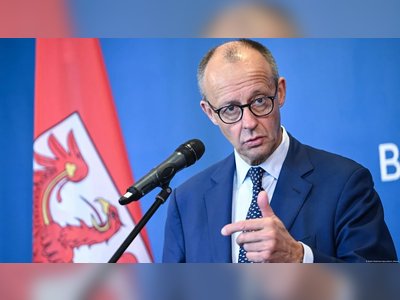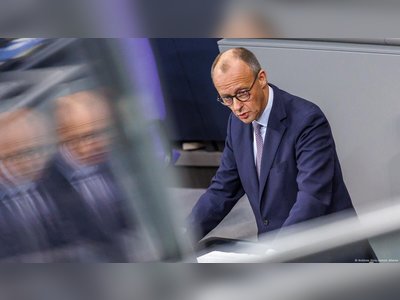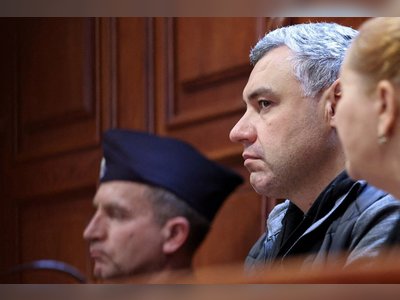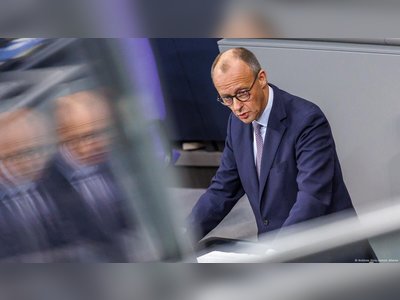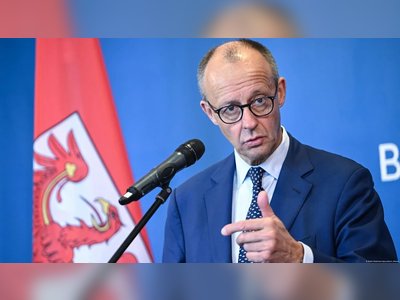"The Tsunami Is Coming, and It’s Massive": The World’s Richest Man Unveils a New AI Vision
Before a crowd of thousands, Oracle founder Larry Ellison announced a new era for artificial intelligence, comparing the coming AI revolution to something even greater than the Industrial Revolution.
He promised that the technology will not replace humans but will elevate their capabilities.
Behind this vision stands a three hundred billion dollar deal with OpenAI, expected to reshape the future of cloud services and healthcare.
Tens of thousands of participants from around the world attended Oracle’s three-day conference in Las Vegas, featuring events, lectures, and meetings with technology and AI companies and clients eager to adopt the latest innovations.
The main event — and the one everyone was waiting for — was Ellison’s keynote speech, which drew thousands.
Due to the overwhelming attendance, Oracle split the audience into two halls, with Ellison himself speaking to a smaller crowd of fifteen hundred.
Even those in the larger hall, watching on massive screens, saw him appear almost as if he were on stage, dressed in black pants and a shirt — looking far younger than his eighty-one years.
Ellison, who founded Oracle in 1977, is approaching a milestone: in less than two years, the company will celebrate its fiftieth anniversary.
He is now considered the richest man in the world, with a fortune estimated at around three hundred seventy billion dollars — depending on the day.
His wealth grew by one hundred ninety-five billion dollars this year alone, thanks to Oracle’s stock surge fueled by major AI investments, including the massive OpenAI contract signed last month.
According to Safra Catz, the company’s legendary Israeli-American CEO — recently appointed senior vice chair of the board — Oracle’s current business pipeline includes infrastructure deals worth about half a trillion dollars.
Over the years, Ellison has been careful to avoid past mistakes — his own and those of others.
Oracle’s transition to the cloud took longer than expected, frustrating some investors, but Ellison and Catz remained committed to their strategic vision.
Their patience appears to have paid off: Oracle Cloud Infrastructure, once considered a distant challenger, is now a serious competitor to Amazon Web Services.
The numbers are remarkable: Oracle’s cloud revenue is expected to reach eighteen billion dollars this year, thirty-two billion in 2027, and one hundred forty-four billion by 2030, closing in on Microsoft, AWS, and Google Cloud.
“Not everyone understands how massive the approaching tsunami is,” Ellison said.
At the same time, the success of "Stargate" — a massive U.S. government infrastructure project Oracle is leading — could integrate the company into America’s national AI infrastructure on an unprecedented scale.
The conference also introduced Oracle’s two new CEOs: Mike Sicilia, in charge of AI-based applications and infrastructure, and Clay Magouyrk, founder of the company’s cloud engineering center, who presented their vision for the company’s future.
Ellison outlined a future entirely powered by AI — not meant to replace humans, but capable of assisting in almost every aspect of life.
He focused on AI’s rise and Oracle’s pivotal role in providing the infrastructure that drives this revolution, comparing the human brain to the new generation of multimodal models.
He discussed the shift that began with the launch of GPT-3, when AI systems started sounding more “human”.
“When that happened,” he said, “AI entered a new phase — one where machines don’t just process language, but also see, hear, and analyze information”.
Ellison described the global race to train massive AI models as “the fastest-growing business in human history — bigger than railroads, bigger than the Industrial Revolution”.
This revolution, he explained, has two phases: building the models, and then applying them to solve real-world problems, such as early cancer detection or performing highly precise robotic surgeries.
With microscopic vision, these systems can identify where cancer cells begin and end in a patient’s body.
In the future, he predicted, patients will choose doctors who use robots to perform surgeries.
“Robots will be better surgeons than humans,” he declared.
“Not because they’re smarter, but because they have better hand-eye coordination and far sharper vision”.
Addressing fears that AI will replace human workers, Ellison emphasized that it will become a powerful tool serving humanity.
“Some people think it will replace humans and all human activity, but I don’t think that’s true. AI will help us solve problems and make us better scientists, engineers, teachers, chefs, and surgeons. We’ve never built a tool like this before”.
Ellison, who spoke about AI decades ago, recalled wondering then whether it might be “the most important technology in human history”.
Today, he said, the answer is clear: “The smartest people I know are investing huge sums in building and training these models. That shows how important — how extraordinary — they are”.
Still, he acknowledged a significant challenge: data privacy.
“These models don’t train on private information,” he said.
“On the one hand, people want to keep their data private — that won’t change. But on the other hand, they want the models to analyze their private data”.
To address this, Ellison unveiled a new solution: Oracle AI Data Platform, which allows users to choose from models like Gemini, GPT, or Grok and connect them securely to private data while maintaining privacy protections.
Ellison concluded that secure integration between AI and private data could transform how organizations use AI.
“People want to protect their privacy while also benefiting from AI — and that’s exactly what we aim to enable,” he said.
Oracle’s AI system uses retrieval-augmented generation (RAG) to access the latest information from sources like medical literature, lab results, and vital signs, combining it with insurance policies and government data to recommend optimal treatment plans — both medically and financially.
These capabilities are powered by the Oracle AI Database, which lets AI access and process private and organizational data whether stored in Oracle’s cloud or external platforms like Amazon’s.
This integration delivers more accurate, up-to-date, and reliable recommendations, supporting doctors in real-time clinical decision-making.
Ellison described how Oracle first used this technology internally: “Our first project involving private data access for AI was processing all our customer data,” he said.
This allowed Oracle to predict which customers were likely to purchase another product within six months.
Based on this analysis, AI agents carried out marketing tasks like sending personalized emails with “the top three recommendations most likely to encourage immediate purchases”.
He also highlighted one of Oracle’s most advanced AI applications: an agent connecting healthcare providers with insurers to help doctors determine “the best possible treatment a patient can receive with full reimbursement”.
In some regions, certain drugs are not covered by public healthcare systems, so the AI considers which treatments are reimbursable and suggests effective alternatives.
Ellison concluded that Oracle’s broader goal is not only to develop AI technology but also to use it “to solve problems across ecosystems and industries,” with healthcare being a prime example.
“We’ll be able to monitor patients at home just as we do in hospitals,” he said.
Ellison also mentioned several Israeli companies leading medical innovation, including Imagene AI, which develops AI-based systems for early disease detection — particularly cancer — and whose solutions are already in use at major hospitals such as Sheba and Ichilov.
Ellison participated in the company’s latest funding round, during which it raised about twenty-three million dollars.
At the same time, Oracle is developing a new metagenomic testing device that could revolutionize disease diagnostics.
While PCR tests detect only known viruses, this new sensor will sequence all components in a sample and identify unknown pathogens.
This technology will enable early cancer detection and provide insights into new pathogens and their antibiotic resistance.
The goal is to make these devices affordable and widely accessible by manufacturing them at scale in robotic facilities — ensuring high quality at low cost.
Such technology could also serve as an early warning system for pandemics, helping prevent another global crisis like COVID-19.
Ellison also highlighted Oracle’s increasing use of AI and biometrics to improve cybersecurity, prevent identity theft, and enhance healthcare services.
Biometric systems — using facial recognition, voice, or fingerprints — will eliminate the need for passwords and reduce fraud.
“We can prevent identity theft using AI,” he said.
“No more logins, no more stolen passwords, no more credit cards that need replacing. We can make everyone theft-resistant. Biometric credit cards will make identity theft extremely difficult and dramatically reduce credit card fraud”.
“Nobody likes passwords,” Ellison added.
“They tell you it has to be seventeen characters long, with two underscores. The only way to remember it is to write it on a sticky note and put it next to your computer. It’s ridiculous”.

